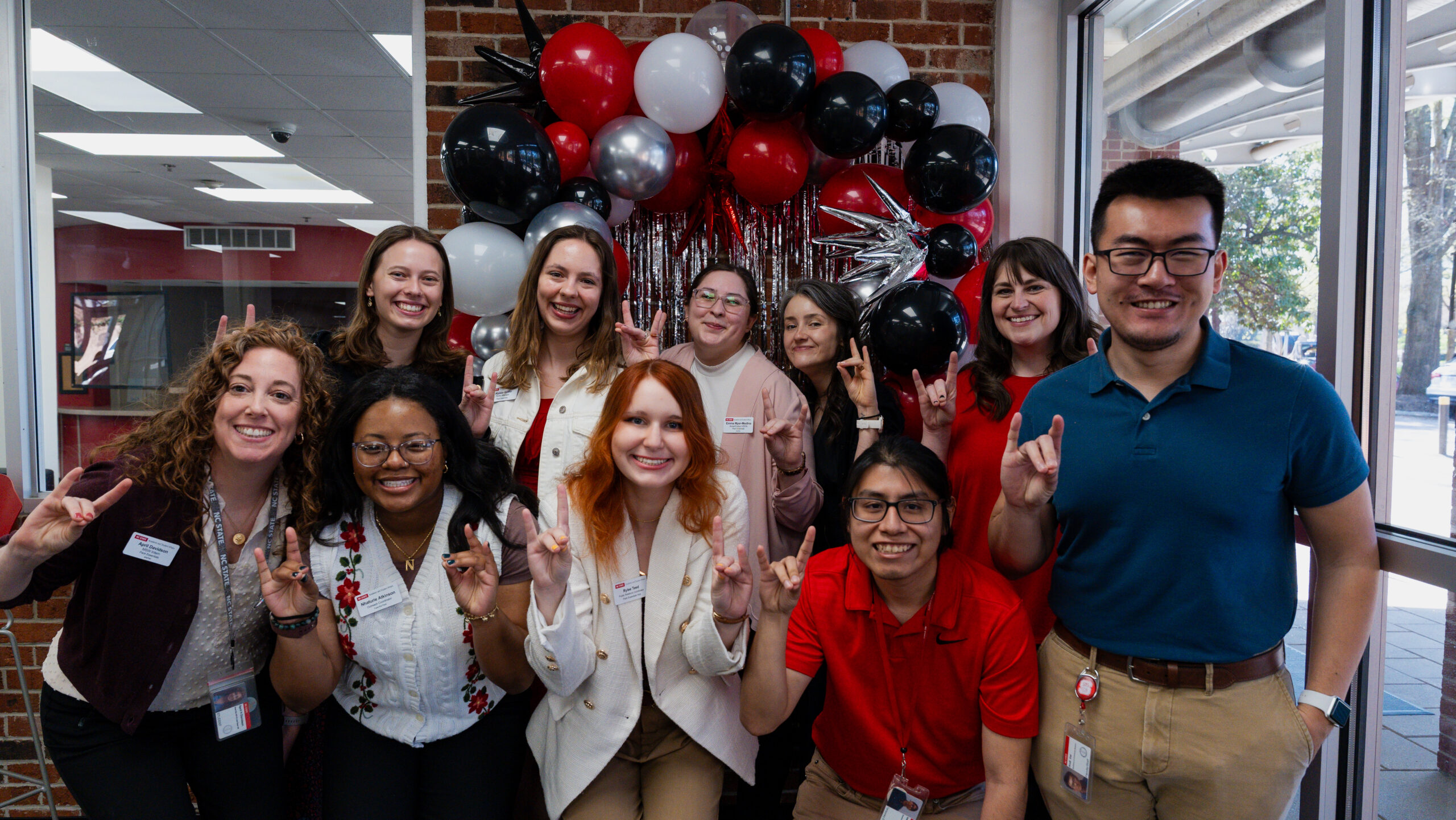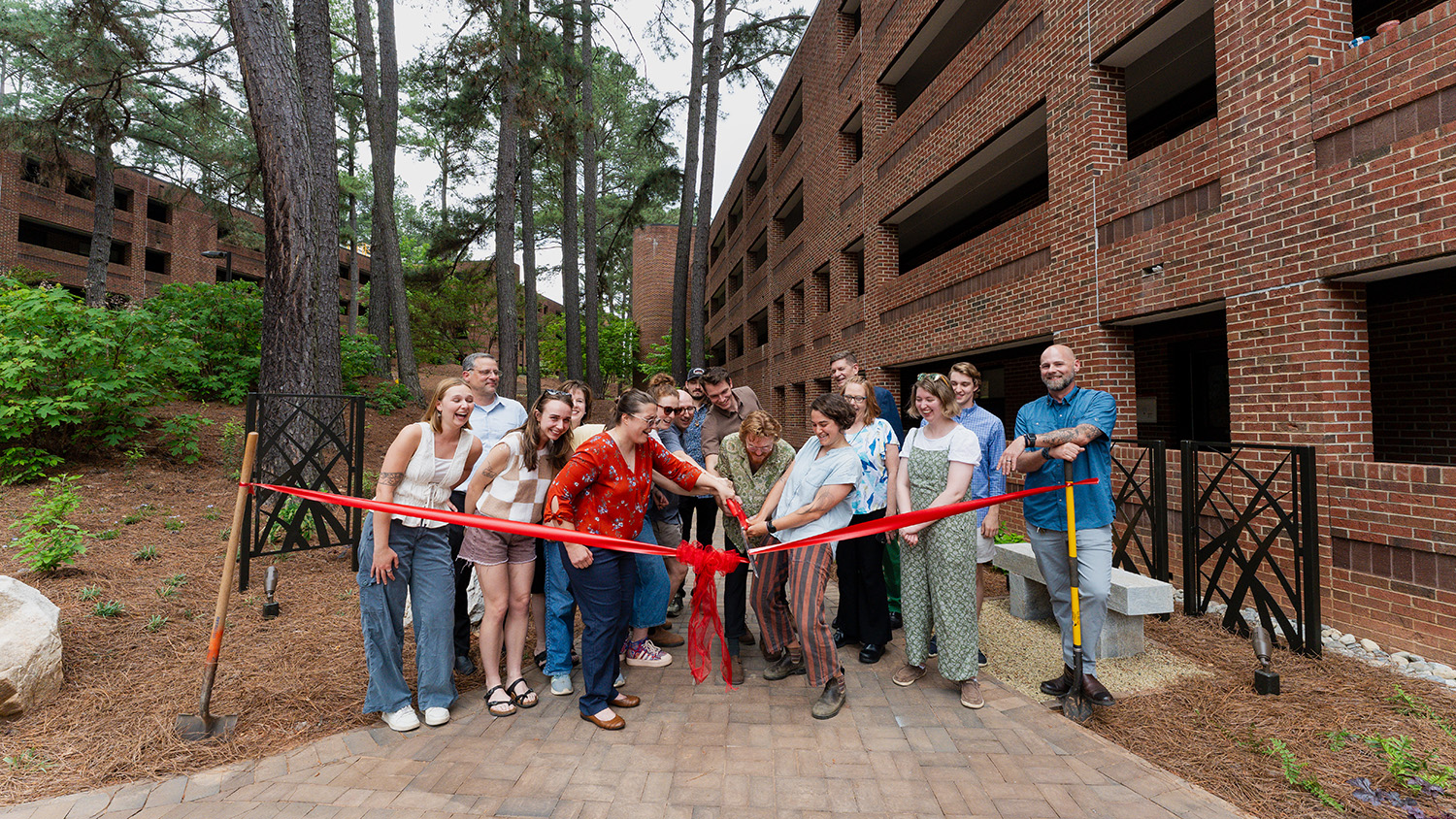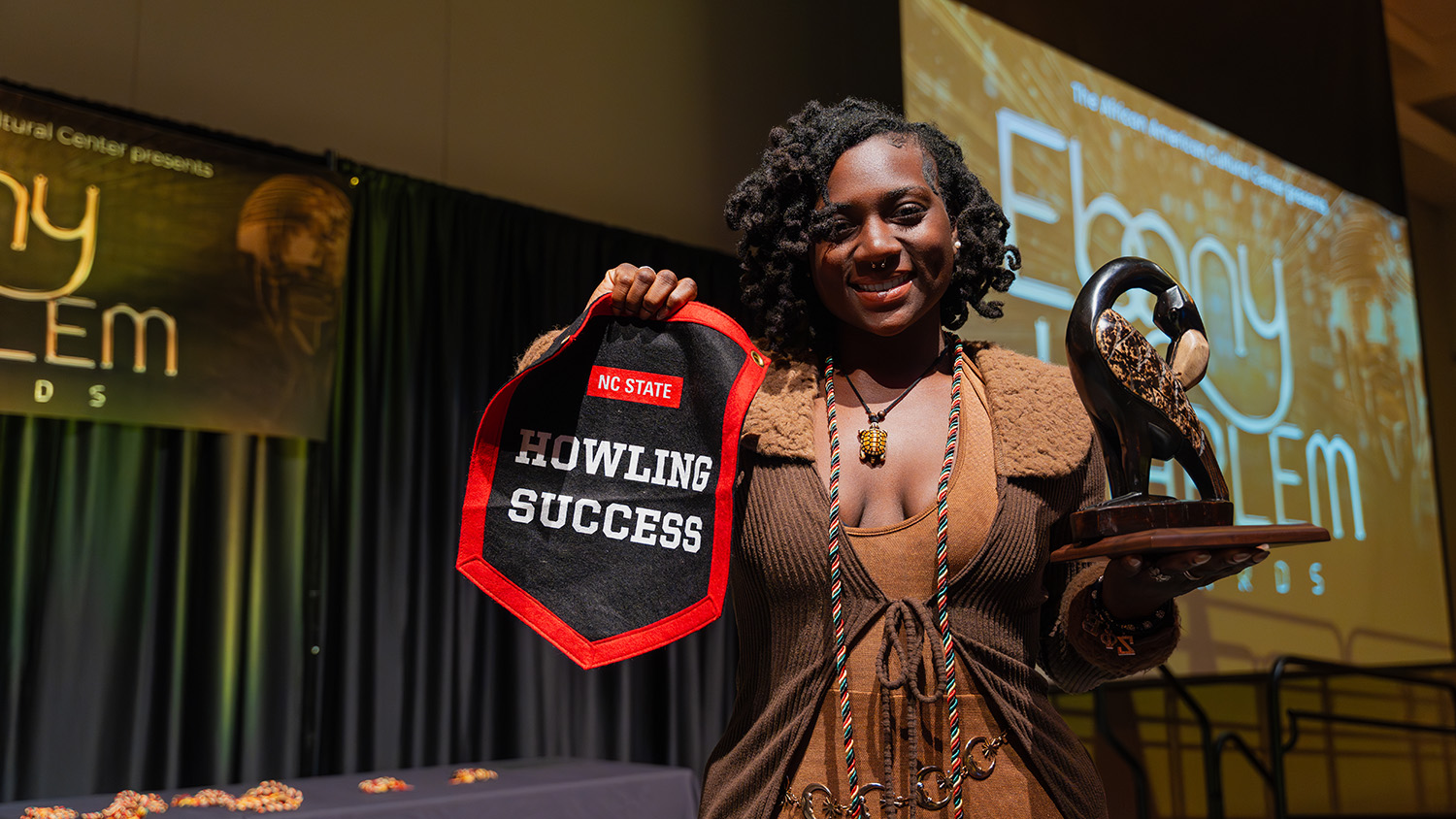Thought for Food
This summer, students, faculty and staff worked together to install 237 composting bins in NC State’s apartment complexes, Wolf Village and Wolf Ridge.
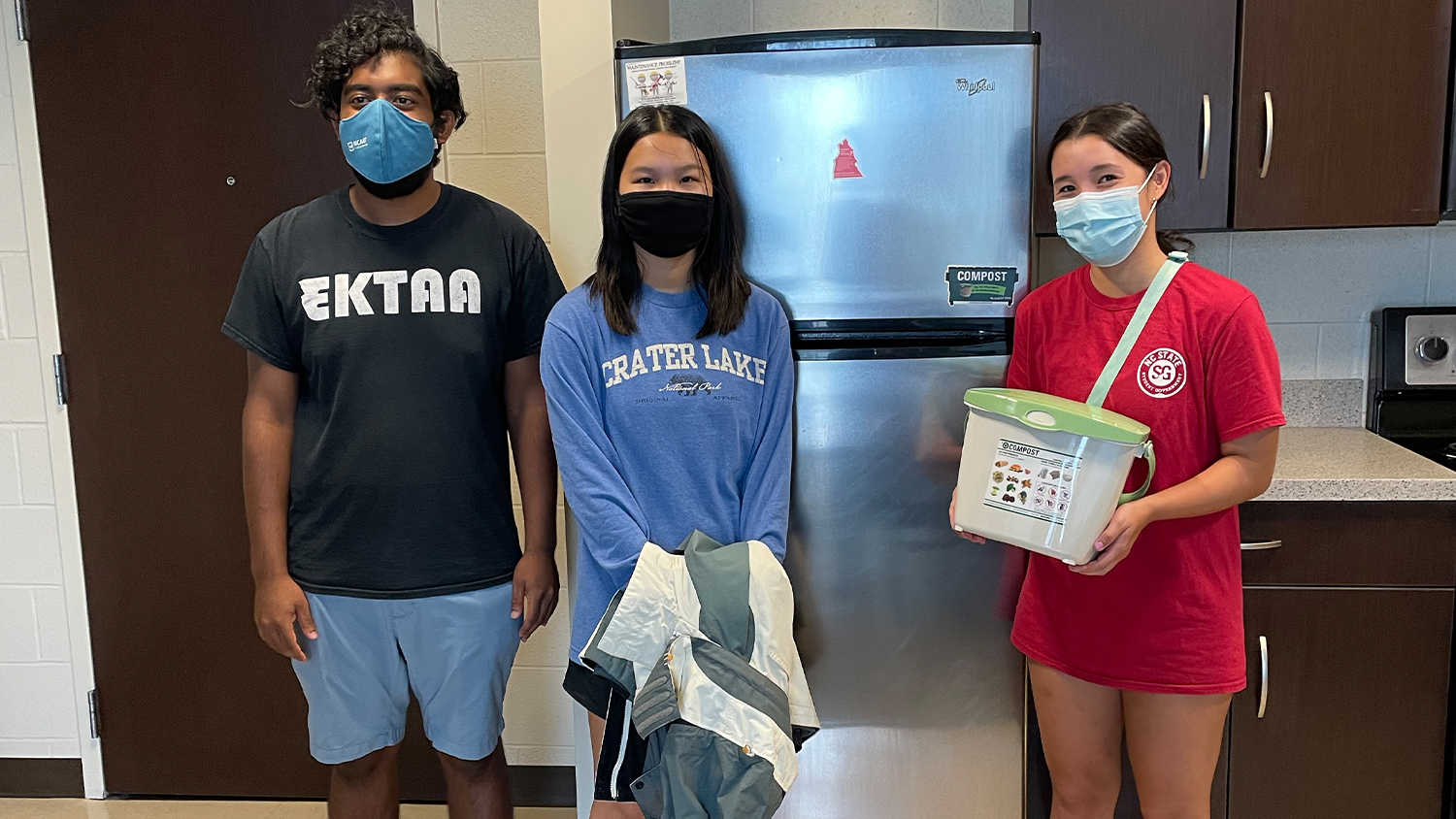
By Natalie Gore, DASA Marketing intern
Prior to move-in, NC State Student Government partnered with University Housing, University Sustainability and the Staff Senate’s Resources and Environment Committee to expand composting within NC State’s on-campus apartments, Wolf Village and Wolf Ridge.
Ann Winstead (environmental science, political science ’23), a member of Student Government, organized the initiative to purchase and distribute composting materials to the residents living in Wolf Village Hudson and Arctic as well as Wolf Ridge Tower and Plaza. Every on-campus room comes equipped with trash and recycling bins, yet this initiative is the first time that the university has provided an entire residence hall of students with composting bins as well. Composting involves decomposing food scraps and other organic matter into a natural fertilizer.
As an environmental science major, Winstead has a strong understanding of how important composting is to the environment as well as a grasp on ways to go about implementing it. Her experience and knowledge propelled this project into actuality. After coordination, University Sustainability purchased 237 composting bins, refrigerator magnets and composting information sheets in the name of Student Government. Members of Student Government as well as volunteers from the Staff Senate then worked together to evenly disperse the materials throughout the apartment buildings.
“Composting is all student initiative,” Winstead said. “I’ve been told since I got here we have the power to do anything…I wanted to make my mark on campus.”
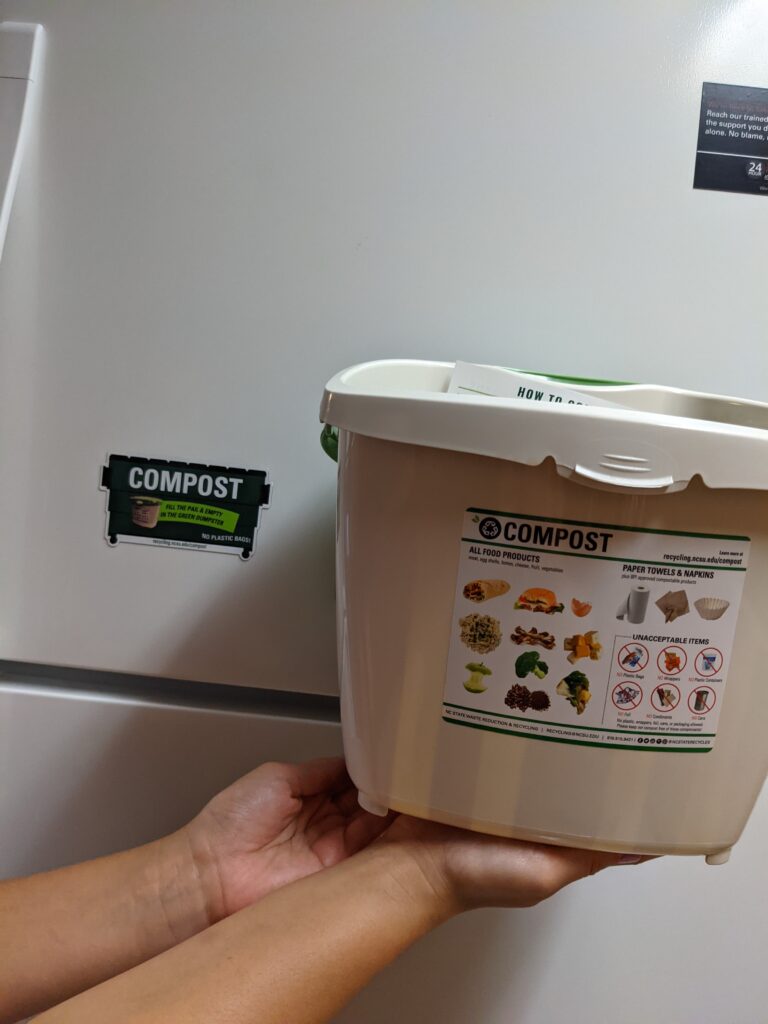
Although 237 bins does not cover the entirety of on-campus living spaces at NC State, it is a start. Winstead hopes to achieve a “closed-loop” circulation system of waste on campus, stating that NC State “has the infrastructure to do so.” A fully closed-loop system is a bit further into the future as the bins project is among the first true initiatives to get students involved in composting. Winstead does not let that impact her, though, as she sticks to a quote from Margaret Mead that says “Never doubt that a small group of thoughtful committed citizens can change the world.” Winstead’s work has welcomed a new movement into the NC State community and has also inspired others to explore their composting passions.
Maria Limmen works as a nurse practitioner for Student Health Services and is a member of the Staff Senate at NC State, but her passion for the environment stems from her past. Growing up in the Netherlands surrounded by greenhouses, she remarked that volunteering on this project made her reminiscent of her childhood. Additionally, Limmen added that she wanted students to grasp that their wasted food scraps “can be repurposed very successfully.”
Limmen added, “Making compost is the single best thing you can do for your garden, if you have one, because it adds organic matter to the soil…Life without healthy soil would be nearly impossible.”
Winstead and Limmen are not alone in their efforts. Almost a dozen people gathered to help them out in spreading the information and materials to learn and complete proper composting. The compost collected from student waste will be processed and turned into fertilizer for campus. Winstead’s dedication to making a change in her community with only a small group of people may actually make a large difference around the NC State campus.
“We have the capacity to make everything compostable here on campus — we just need to connect the dots. I almost think about it in a competitive way; NC State can do better than other rival schools,” Winstead said.
Learn more about composting and how you can get involved in sustainability efforts at NC State at https://recycling.ncsu.edu/compost/.
- Categories:
